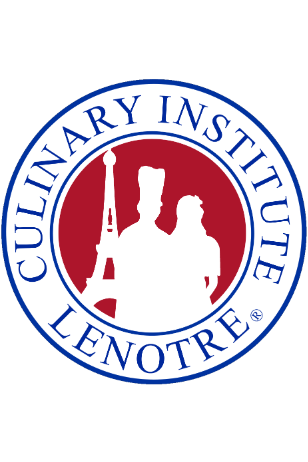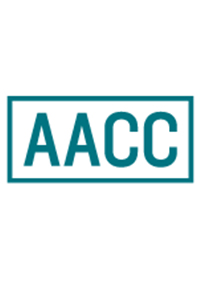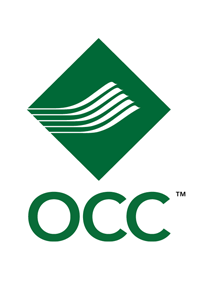Why This Matters
-
52% OF SURVEY RESPONDENTS SAY AN ASSOCIATE DEGREE IS REQUIRED
In a survey conducted by the Occupational Information Network, 52 percent of culinary managers said an associate degree was needed for the job. Many managers do not require this level of education; 17 percent said you will only need a post-secondary certificate.
-
CULINARY JOBS EXPECTED TO GROW BY 5%
The Bureau of Labor Statistics projects there will be 9,200 more chef and head cook jobs in 2032 than there were in 2022.
-
CHEFS AND HEAD COOKS EARN AN AVERAGE SALARY OF $56,520
The top 10 percent of chefs and head cooks earn more than $91,520. Chefs and head cooks tend to make the most money in the amusement, gambling, and recreation industries (average salary of $62,930) and the least in restaurants and other eating places ($52,830).
Our Research
This list features some of the best culinary programs in the country. Each school featured is a nonprofit, accredited institution — either public or private — with a high standard of academic quality for postsecondary education.
We evaluated each school’s program on admission, retention, and graduation rates as well as tuition costs, faculty, reputation, and the resources provided for students. Then, we calculated the Intelligent Score on a scale of 0 to 100. Read more about our ranking methodology.
Next, we compared this comprehensive list of culinary programs to a list of aggregated college rankings from reputable publications like U.S. News & World Report, among others, to simplify a student’s college search. We pored through these rankings so students don’t have to.
- 28 hours to write this article
- 65 universities and colleges we assessed
- 126 education programs we compared
Why Trust Us
The Intelligent.com Higher Education Team is dedicated to providing students with independent, equitable school and program rankings and well-researched resources. Our expert-driven articles cover topics related to online colleges and programs, paying for school, and career outlooks. We use data from the U.S. Department of Education’s College Scorecard, the National Center for Education Statistics, and other reputable educational and professional organizations. Our academic advisory team reviews content and verifies accuracy throughout the year for the most current information. Partnerships do not influence rankings or editorial decisions.
- Analyzed over 2,000 national, accredited, and nonprofit colleges and universities
- 800+ rankings pages are reviewed and updated yearly
- Content is informed by reputable sources, surveys, and interviews with academic advisors and other experts
- Over 100 data points are reviewed for accuracy and quality throughout the year, including sources
How we rank schools
Our list features the best Culinary schools nationwide. Each school featured is a nonprofit, accredited institution — either public or private — with a high standard of academic quality for post-secondary institutions.
We evaluated each school’s program on tuition costs, admission, retention and graduation rates, faculty, reputation, and the student resources provided for online students. We collected data from trusted sources like the National Center for Education Statistics, individual school and program websites, school admissions counselors, and other data sources. Then, we calculated the Intelligent Score on a scale of 0 to 100 based on the following criterion:
Academic Quality:
- Admission rate versus enrollment rate
- Retention rate of students who return after year one
- Accreditation status (regional and programmatic)
- Nonprofit status, both private and public institutions
Graduation Rate
- Overall graduation rate
- Total number of currently enrolled students, including diversity metrics
- Student-to-faculty ratio
Cost and ROI
- In-state and out-of-state per-credit tuition rates and fees
- Required credits to graduate
- Earning potential after graduation
- Availability of federal student loans, scholarships, and other financial aid options
Student Resources
- Available student services for online-only and hybrid programs
- On-campus amenities like tutoring centers and the number of libraries
Read more about our ranking methodology.
The Top 48 Best Culinary Schools
FiltersInstitution Type
Status
- Intelligent Score
- Alphabetically By University Name
- Acceptance Rate
- Enrollment
- In-state Graduate Tuition
- Out-of-state Graduate Tuition
- In-state Undergraduate Tuition
- Out-of-state Undergraduate Tuition

Johnson & Wales University
Intelligent Score: 97.84In-state: $34,376
Out-of-state: $34,376
In-state: $14,148
Out-of-state: $14,148
SAT: N/A
ACT: N/A
$993 per credit
On-campus
New England Commission of Higher Education
120-123 credits
Email: charlotte@admissions.jwu.edu, providence@admissions.jwu.edu
Phone: 866-598-2427

Auguste Escoffier School of Culinary Arts
Intelligent Score: 95.56In-state: $39,365
Out-of-state: $39,365
In-state: NA
Out-of-state: NA
SAT: Not Required
ACT: Not Required
$290 - $353 per credit
On-campus, Online (Boulder Campus)
Boulder Campus: Accrediting Council for Continuing Education and Training Austin Campus: Council on Occupational Education
44 - 90 credit hours
Email: admissionsboulder@escoffier.edu ; admissionsaustin@escoffier.edu
Phone: 877-249-0305

The Culinary Institute of America
Intelligent Score: 95.04In-state: $54,530
Out-of-state: $54,530
In-state: $24,870
Out-of-state: $24,870
SAT: 980-1240
ACT: 20-27
$911 per credit
On-campus
Middle States Commission on Higher Education
132 credits

Institute for Culinary Education
Intelligent Score: 91.89In-state: $50,128
Out-of-state: $50,128
In-state: $14,750
Out-of-state: $14,750
SAT: Not Required
ACT: Not Required
$36,050 - $40,660 program cost
On-campus
Accrediting Commission of Career Schools and Colleges
13 courses

Culinary Institute LeNotre
Intelligent Score: 91.77In-state: $33,738
Out-of-state: $33,738
In-state: NA
Out-of-state: NA
SAT: Not Required
ACT: Not Required
$889 per credit
On-campus
Accreditation Commission of Career Schools and Colleges
69 credits

Metropolitan Community College
Intelligent Score: 91.19In-state: $23,208
Out-of-state: $25,248
In-state: NA
Out-of-state: NA
SAT: N/A
ACT: 18-36
Resident: $66 per credit
Non-Resident: $99 per credit
On-campus
American Culinary Federation Education Foundation's Accrediting Commission
96 credits

Keiser University
Intelligent Score: 90.93In-state: $19,808
Out-of-state: $19,808
In-state: $27,162
Out-of-state: $27,162
SAT: N/A
ACT: N/A
$1,440 per credit
On-campus
World Association of Chefs Societies
72 credits

Pierpont Community & Technical College
Intelligent Score: 90.12In-state: $17,312
Out-of-state: $24,282
In-state: NA
Out-of-state: NA
SAT: Not Required
ACT: Not Required
Resident: $212 per credit
Non-Resident: $502 per credit
On-campus
American Culinary Federation Education Foundation's Accrediting Commission
60 credits

Northwestern Michigan College
Intelligent Score: 90.11In-state: $19,527
Out-of-state: $22,043
In-state: NA
Out-of-state: NA
SAT: 480 or higher
ACT: 18 or higher
In-District: $156 per credit
In-State: $300 per credit
Out-of-State: $400 per credit
International: $452 per credit
On-campus
American Culinary Federation Education Foundation's Accrediting Commission
66-67 credits

College of Southern Nevada
Intelligent Score: 89.84In-state: NA
Out-of-state: NA
In-state: NA
Out-of-state: NA
SAT: N/A
ACT: N/A

Monroe College
Intelligent Score: 89.71In-state: $46,008
Out-of-state: $46,008
In-state: $46,563
Out-of-state: $46,563
SAT: Not Required
ACT: Not Required
$624 per credit
On-campus
American Culinary Federation's Educational Foundation
60 credits

Anne Arundel Community College
Intelligent Score: 89.59In-state: $22,722
Out-of-state: $29,874
In-state: NA
Out-of-state: NA
SAT: 450-580
ACT: 17-25
Resident: $120 - $241 per credit
Non-Resident: $408 per credit
On-campus
American Culinary Federation Foundation's Accrediting Commission
61 credits

Kendall College (National Louis University)
Intelligent Score: 89.46In-state: $13,419
Out-of-state: $13,419
In-state: $11,646
Out-of-state: $11,646
SAT: N/A
ACT: N/A
$655 per quarter credit
On-campus
American Culinary Federation Education Foundation's Accrediting Commission
94-192 quarter credits

Sullivan University
Intelligent Score: 86.92In-state: $13,500
Out-of-state: $13,500
In-state: $15,840
Out-of-state: $15,840
SAT: N/A
ACT: N/A
$495 per credit
On-campus
Southern Association of Colleges and Schools Commission on College
94 credits

Walnut Hill College
Intelligent Score: 85.56In-state: $40,053
Out-of-state: $40,053
In-state: NA
Out-of-state: NA
SAT: 900 or higher
ACT: N/A
$9,825 per term
On-campus
Accrediting Commission of Career Schools and Colleges
99.5-197 credits

Drexel University
Intelligent Score: 82.87In-state: $53,868
Out-of-state: $53,868
In-state: $36,234
Out-of-state: $36,234
SAT: 1180-1380
ACT: 25-31
$790 per credit
On-campus
Middle States Commission on Higher Education
185 credits

Savannah Technical College
Intelligent Score: 82.8In-state: $19,930
Out-of-state: $22,330
In-state: NA
Out-of-state: NA
SAT: N/A
ACT: 14-17
In-State: $100 per credit
Out-of-State: $200 per credit
On-campus
American Culinary Federation Education Foundation's Accrediting Commission
65-66 credits

Oakland Community College
Intelligent Score: 82.8In-state: $18,670
Out-of-state: $18,670
In-state: NA
Out-of-state: NA
SAT: Not Required
ACT: Not Required
In-District: $97 per credit
Out-of-District: $188 per credit
On-campus
American Culinary Federation ; Higher Learning Commission
64-68 credits
What You Should Know About This Degree
There are many programs similar to culinary schools, such as food service management, dietician, and nutritionist programs. Before you commit to a particular program, make sure that it is the best fit for your career goals.
We recommend you choose a program offering internship or externship opportunities. Culinary workplaces can be a hectic environment, and this hands-on experience is the best way to prepare yourself for your first job in the industry.
The American Culinary Federation (ACF) is the main certifying body in the culinary industry. They offer 16 professional certifications, which cover different types of cooking such as savory and pastry as well as different levels of expertise such as sous chef, executive chef, and master chef.
Once you have graduated from a culinary school and earned your accreditation, you will find there are many different career paths available to you. For example, you could work in a restaurant, become a personal/private chef, or teach courses at a culinary school.
What’s Next?
Here are some questions to ask when researching culinary schools:
- Am I eligible for this program? Generally, you only need a high school diploma or GED credential to be accepted into a culinary school. Review the program’s admissions requirements to see if there are any other qualifications you need to meet.
- How long does it take to complete this program? Most certificate programs can be completed within one year, while associate degree programs tend to take two years, and bachelor’s degree programs tend to take four years. Some schools offer accelerated programs, which allow you to reduce the amount of time it takes to earn your degree.
When you are researching different culinary schools, you should always keep track of the application deadlines and application materials that you need to submit. If you can’t find this information on the school’s website, contact their admissions department.
You should also talk to the admissions department about any scholarships, grants, and other financial aid options that are available to you. If you are already working in the culinary field, your employer may have an assistance program you can use to help pay for your educational expenses.
